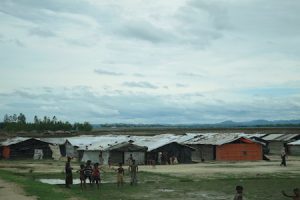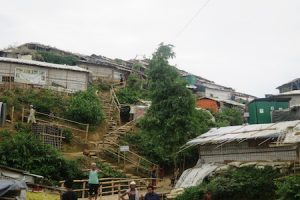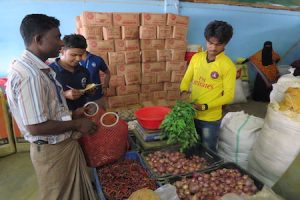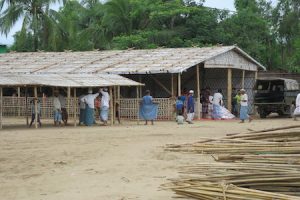The Rohingya are one of Myanmar's many ethnic minorities, representing the largest percentage of Muslims in Myanmar. The majority of Rohingya people live in Rakhine State.
The Rohingya exodus to Bangladesh began in late August 2017, and from that time, the number of Rohingya refugees crossing the Bengali border seeking shelter has increased steadily. At the end of 2019, about 915,000 Rohingya refugees were living in the sub-districts of Ukhia and Teknaf in Cox's Bazar in Bangladesh. According to the UNHCR household count, about 55% of them are children and 52% are women.
On January 2018, Bangladesh and Myanmar reached an agreement on the repatriation of the displaced population from North Rakhine (Physical Arrangement for Repatriation of Displaced Myanmar Residents) which, following the agreement on returns from November 2017, defines the first practical arrangements for the return of refugees who are now confined to 34 camps in Cox`s Bazaar.
Although the people eligible to return to their villages in Rakhine have been identified, it did not result in a movement of people. Many Rohingya refugees are unwilling to return to Rakhine without first obtaining minimum guarantees from the Myanmar government, including the return of lost land and property, access to public services, formal recognition of Rohingya as an ethnic group and full citizenship.
The Government has asked them to provide evidence of their right to citizenship, based on the strict requirements of the 1982 Citizenship Law , before it takes these actions.
In March 2019, the Government of Bangladesh announced that it would not accept more Rohingya fleeing Myanmar into its territory.
The UN system refers to this population as Rohingya refugees, in line with the applicable international framework for protection and solutions and the resulting accountabilities of the countries of origin and asylum in addition to the international community as a whole. The international community works closely with Governments on both sides of the border to facilitate voluntary, safe and dignified returns to break the decades-long cycle of displacement.
Aware of how critical addressing the crisis on both sides of the border is, in February 2018 the Italian Cooperation Joint Committee extended the mandate of AICS Yangon to cover humanitarian response activities in Bangladesh.
The Italian Cooperation focuses on the area of Cox's Bazar and supports emergency programs carried out by UN agencies and international NGOs. After a first contribution to the International Committee of the Red Cross (ICRC), whose project was recently completed, the Italian Cooperation confirmed its commitment to addressing the Rohingya crisis and approved a € 1.4 million grant to UNHCR in December 2019. The project is currently ongoing and provides humanitarian support to Rohingya refugees and Bengladesh host communities in Cox's Bazar district.
To learn more, please visit the sites below:




